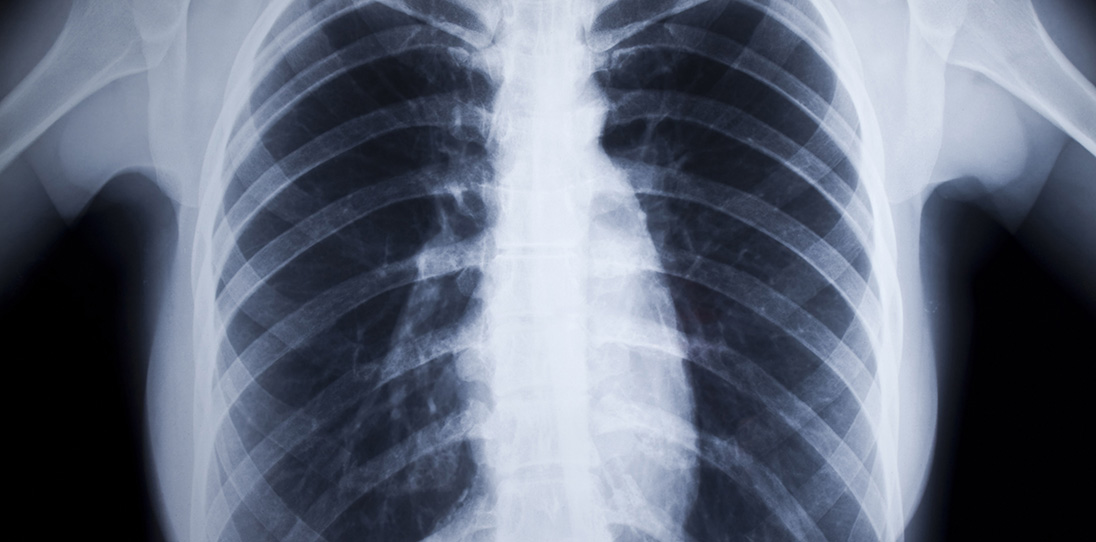A US study has linked serostatus to lung problems in RA patients
A new study has shed light on the association between rheumatoid arthritis and the lungs, finding that seropositive patients have more than twice the risk of lung abnormalities than those without RA autoantibodies.
The study, published in Clinical Rheumatology, showed that RA seropositive patients were around two to three times more likely to have restriction, obstruction and diffusion abnormality of the lungs than seronegative patients.
Researchers from Harvard Medical School in the US analysed around 1,300 patients with RA from a longitudinal study.
Rheumatoid factor was more closely associated with lung abnormalities than anti-cyclic citrullinated peptide antibodies, the study found.
The higher the rheumatoid factor titre, the greater the effect. The associations remained significant after the researchers adjusted for smoking status.
The research was observational and therefore could not show that lung problems preceded or caused joint inflammation.
But the lungs have long been considered a possible origin of RA.
“There’s been a longstanding notion that something you inhale is doing something in the lung to stimulate the immune system,” Professor Michelle Leech, the deputy director of rheumatology at Monash Health in Melbourne, told The Medical Republic.
“This paper is showing that people with rheumatoid factor in their blood and [to a lesser degree] anti-CCP have got a much higher chance of having something wrong with their lungs.
“To me, that makes perfect sense because a lot of people think that the disease of rheumatoid arthritis actually starts in the lungs.
“And not everyone has it break out into the joints. In some people it could be localised to the lungs.”
There is a significant body of epidemiological evidence connecting inhalation of pollution and cigarette smoke to RA.
At the turn of the 20thcentury in Sweden, it was observed that postal workers who rode at the front of trains near the engine smoke were at increased risk of RA.
“Maybe if someone had paid much closer attention to [those postal workers], that pathogenic process could have been discovered a long time ago,” said Professor Leech.
The Nurses’ Health Study found that respiratory disease mortality was three times higher in women with seropositive RA than in women without RA.
“There’s such a powerful lot of epidemiological evidence connecting inhalation of something to rheumatoid,” said Professor Leech. “I think this paper is adding more weight to that story.”
The extent to which RA involved the lungs appeared to differ between patients, she said.
“I’ve seen people with quite bad lung fibrosis from rheumatoid, but the joints are not too bad, and more often we see people who’ve got swollen, terrible joints and their lungs sound fine,” she said.
“What this paper is saying is if somebody’s got rheumatoid factor, or anti-CCP, we should perhaps be a bit more careful in looking for lung function problems. It might be that we need to be more vigilant in that group.”
But testing asymptomatic patients was usually a bad idea because it tended to cause anxiety, she said.
“If I had a perfectly asymptomatic patient who said, ‘I’m not breathless, I can walk 10km, I’m feeling good, I don’t have a cough’, I would not necessarily be ordering lung function tests just because of that positive antibody, because it’s not going to change my treatment right now. It may never become clinical,” she said.
Professor Leech said there were genetic differences that predisposed people to seropositive and seronegative RA, which meant they could still have a unified pathogenesis from something inhaled.
Besides noxious airborne triggers, it has also been suggested that the lung microbiome plays a role in the pathogenesis of RA.
In a 2014 paper, Dr Kristen Demoruelle et al. proposed that a microorganism such as Porphyromonas gingivalis may be implicated, either independently or as one of several environmental factors.


